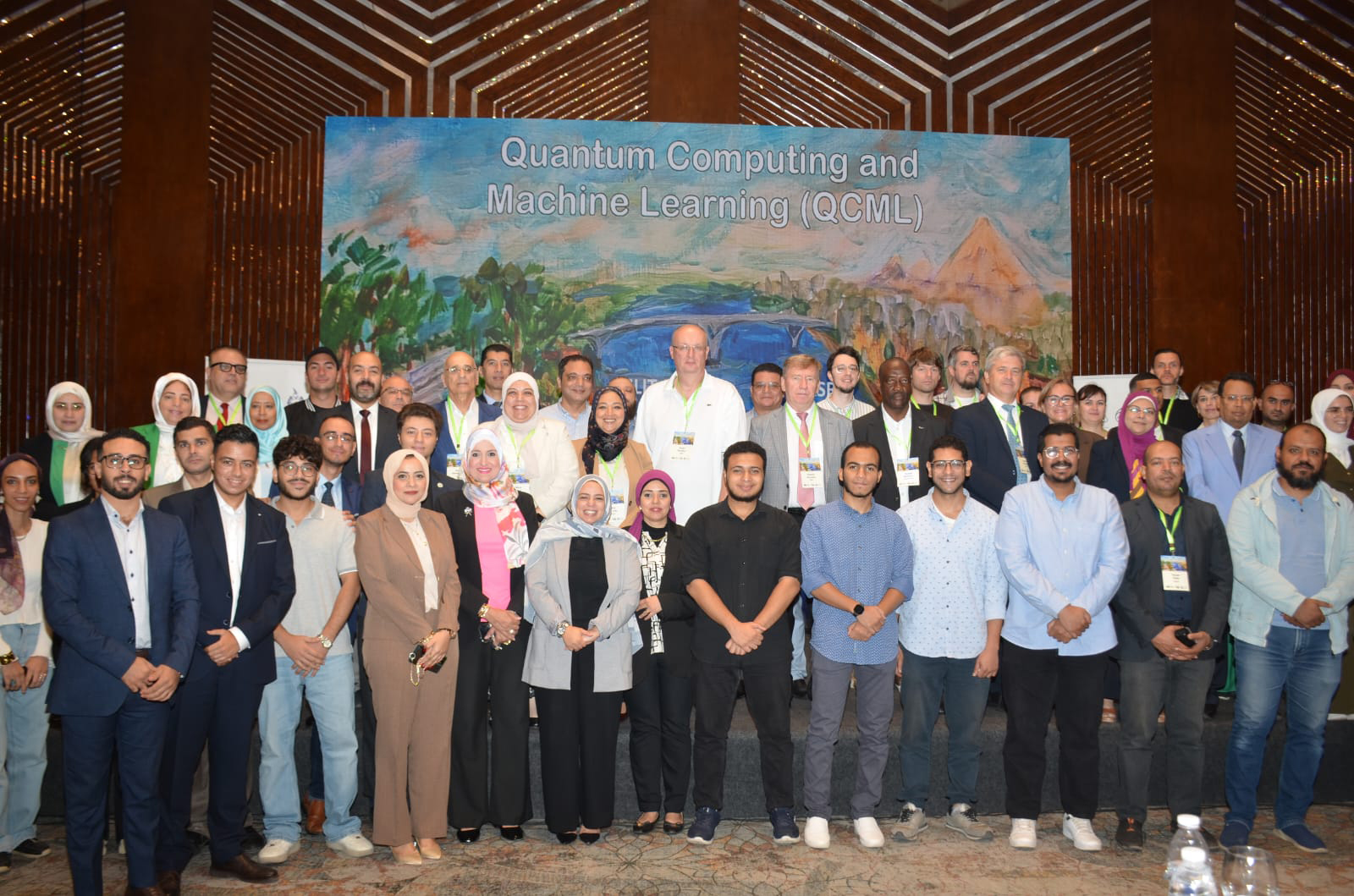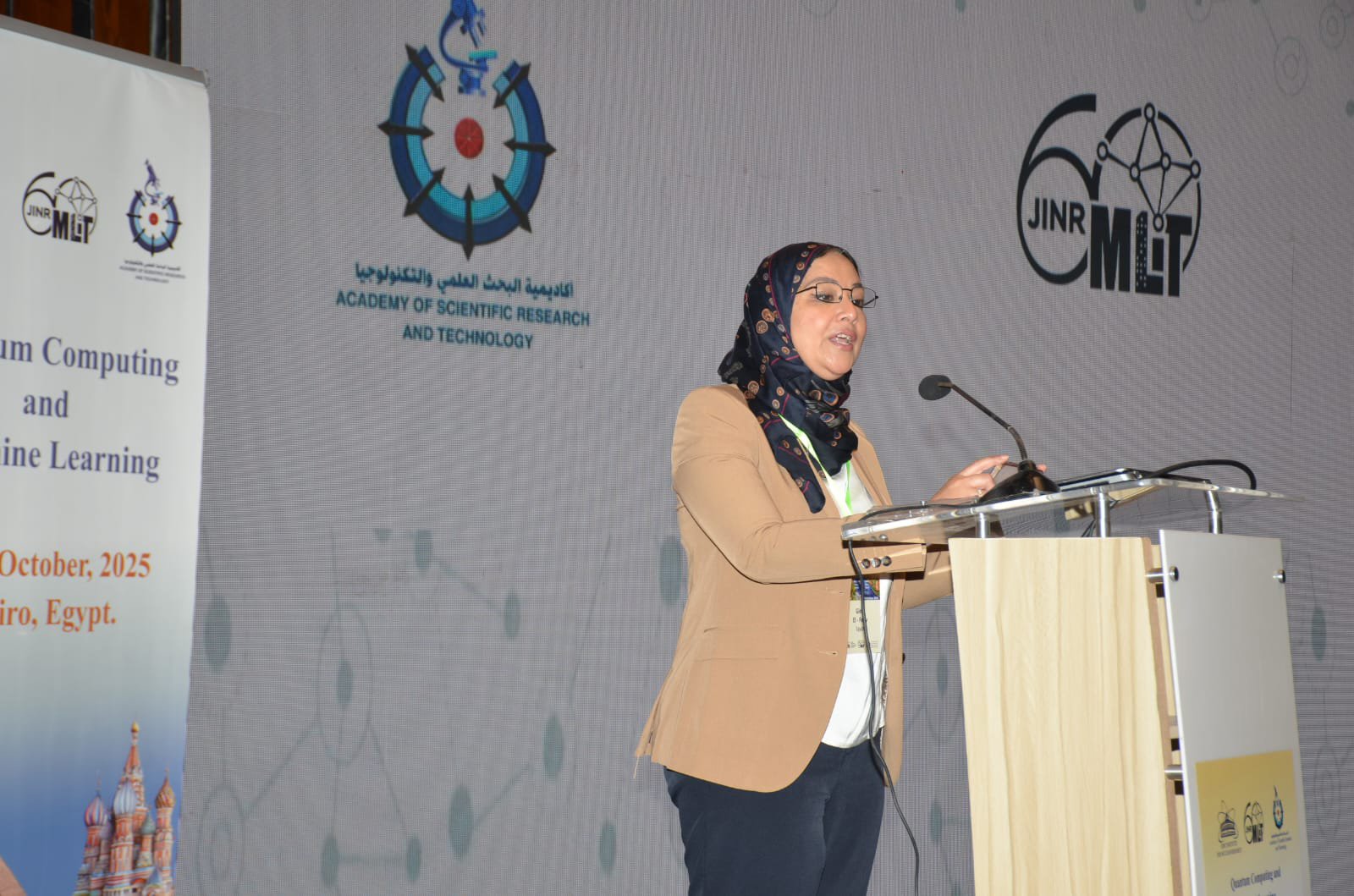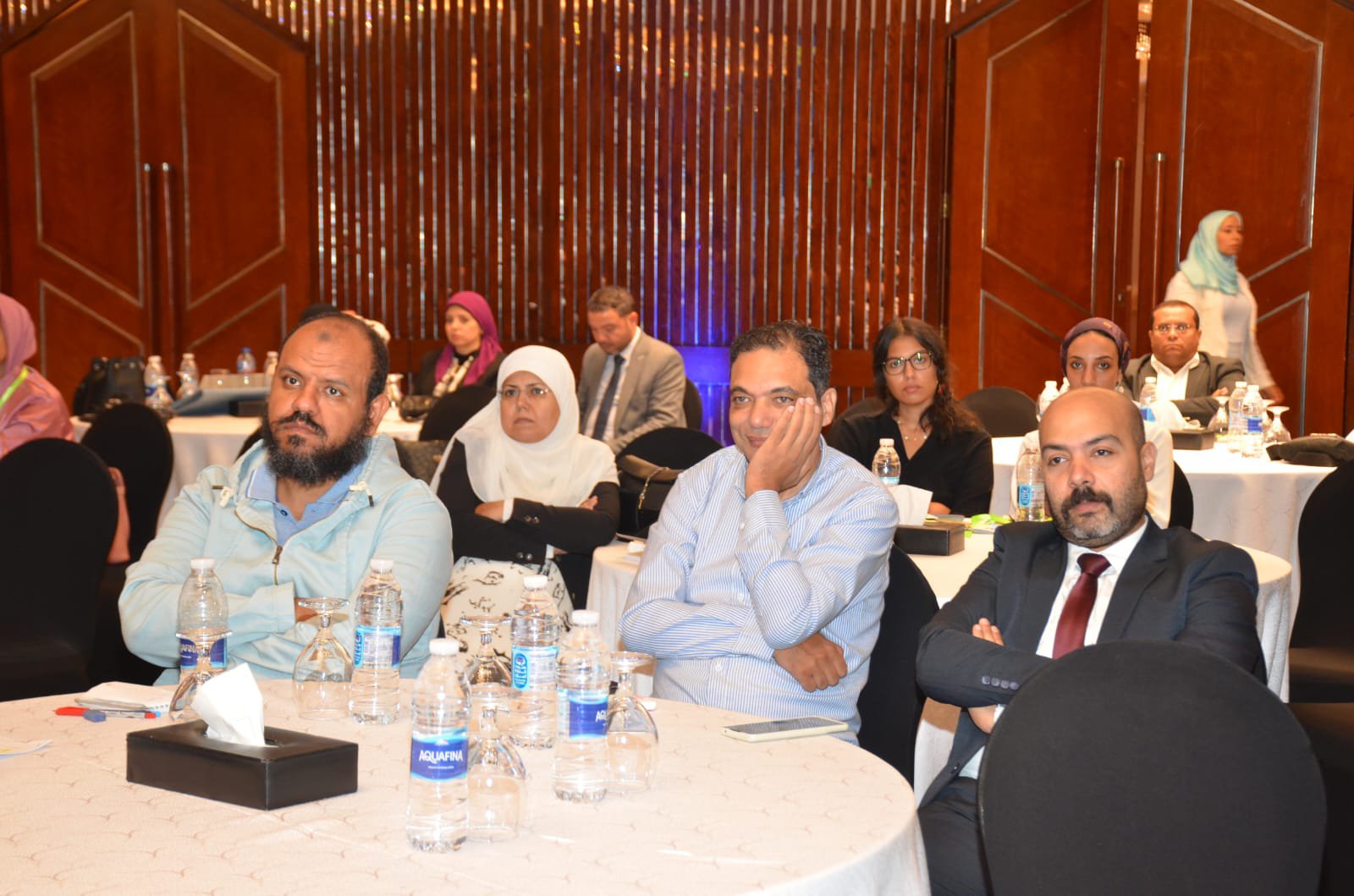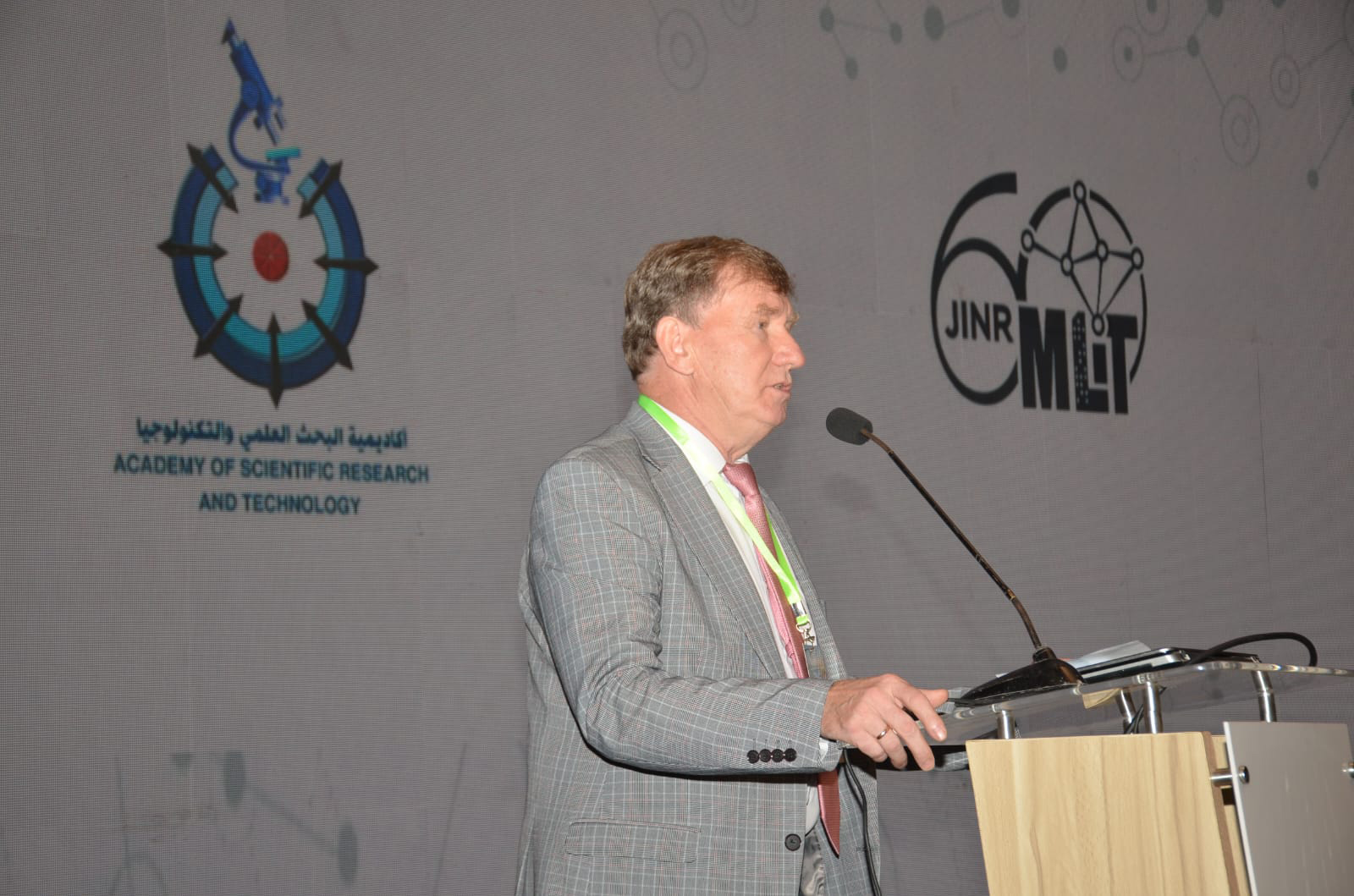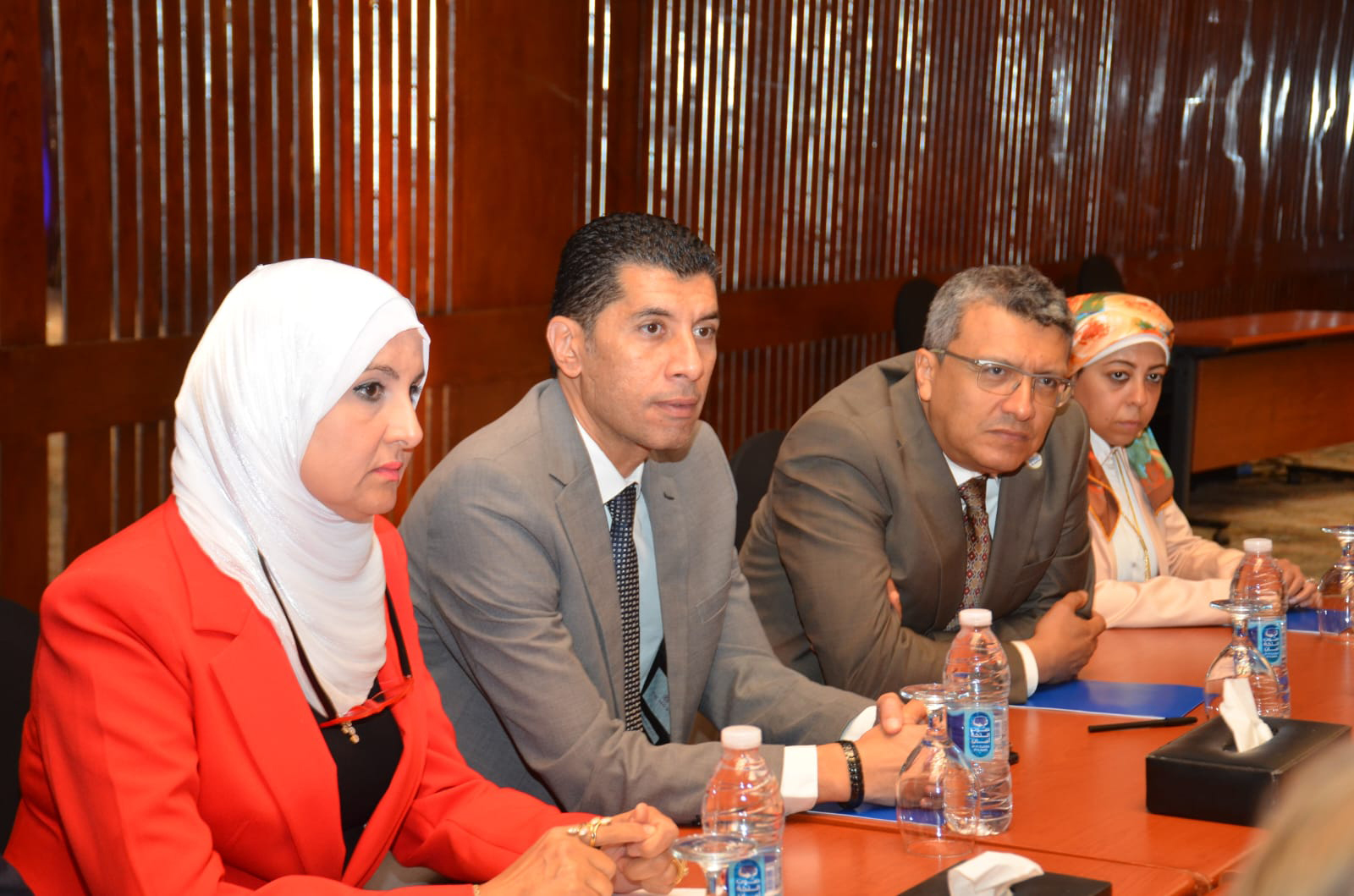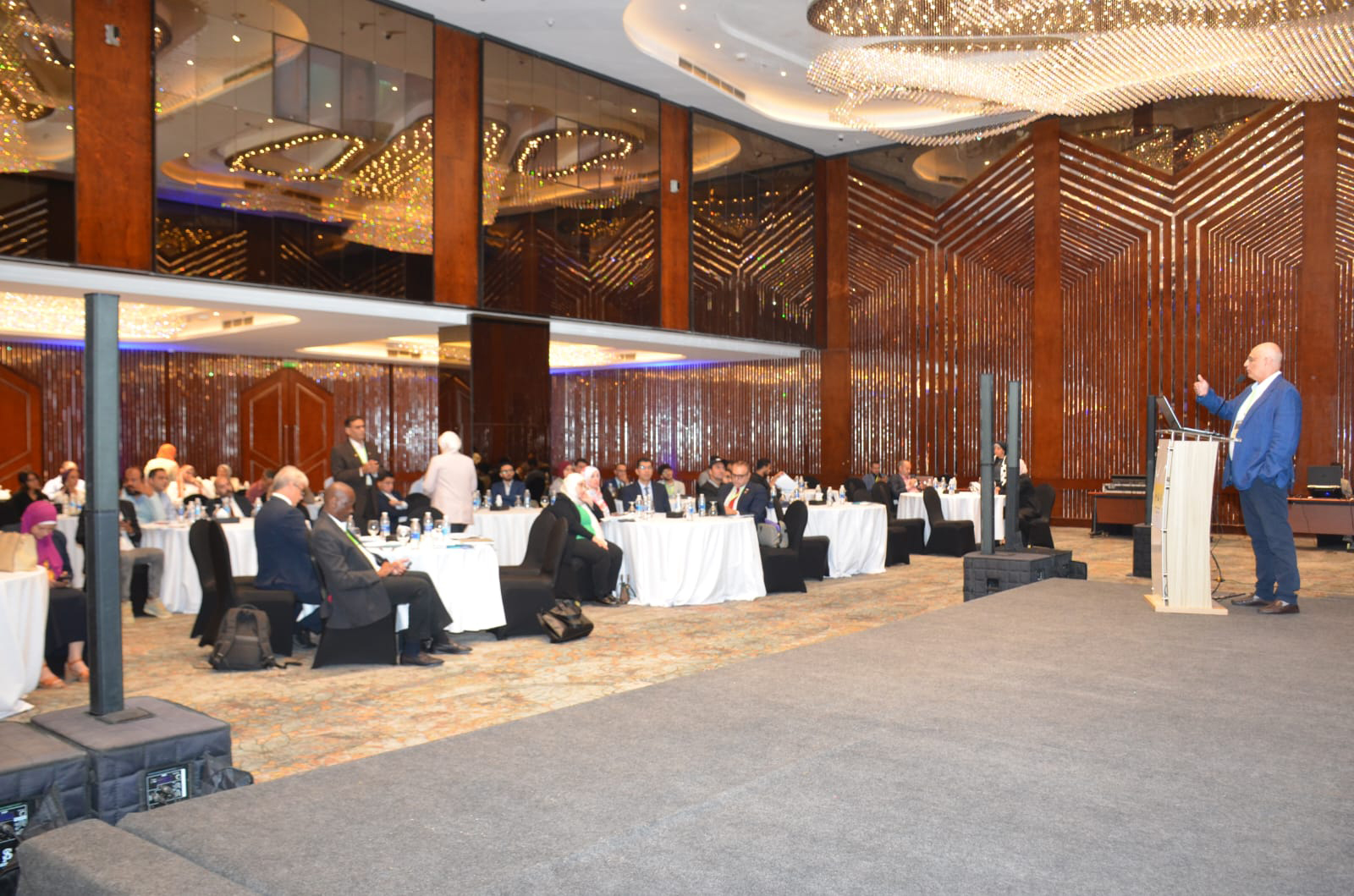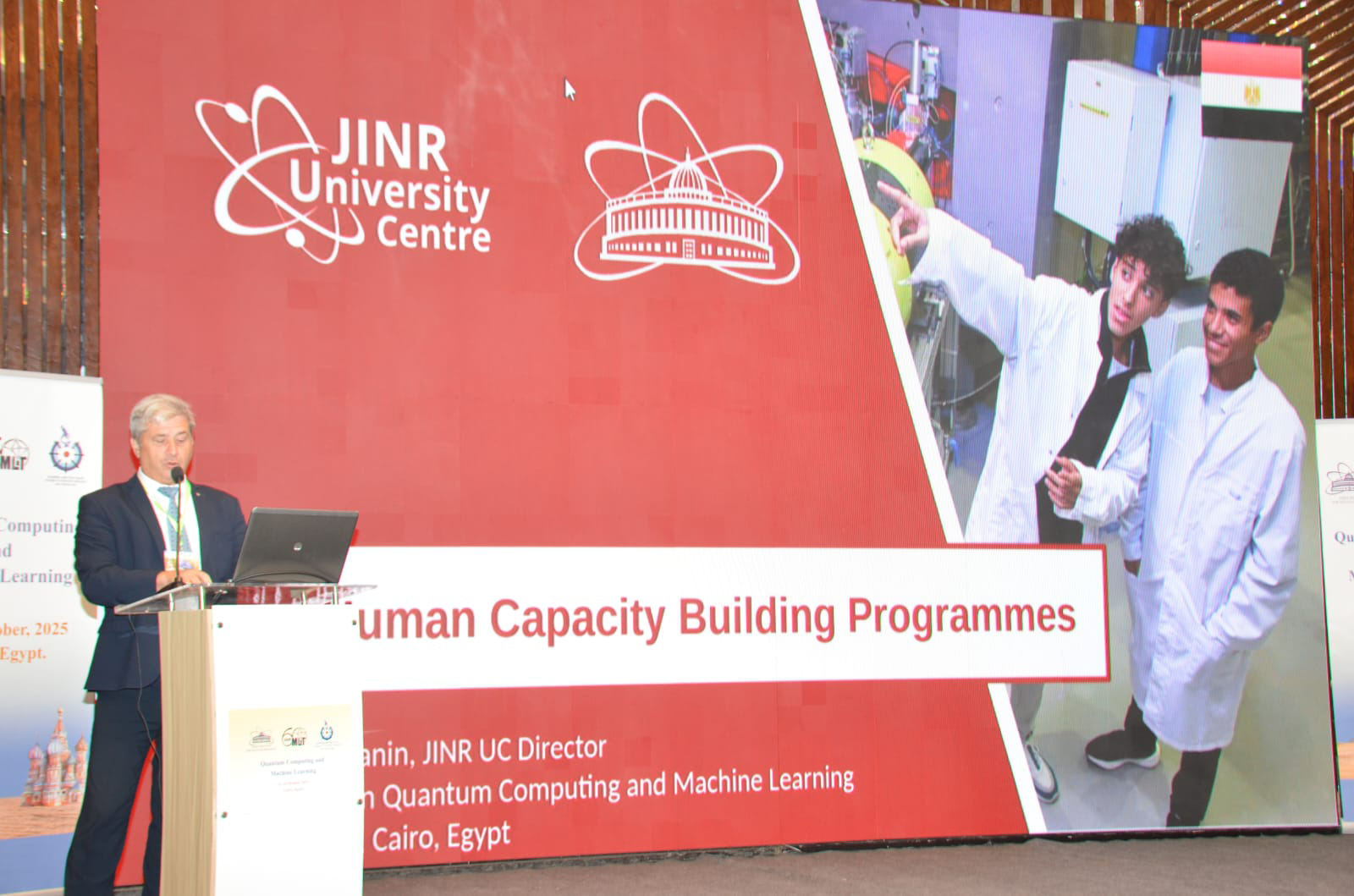JINR and Egypt combine efforts to advance quantum computing
News, 17 October 2025
On 11–14 October 2025, the workshop on Quantum Computing and Machine Learning (QCML) took place in Cairo. The organizers were the Meshcheryakov Laboratory of Information Technologies and the Egyptian Academy of Scientific Research and Technology (ASRT). The meeting brought together about 120 scientists from Armenia, the Czech Republic, Egypt, Georgia, Russia, and South Africa. Representatives of MLIT and the Bogoliubov Laboratory of Theoretical Physics made presentations on behalf of the Joint Institute for Nuclear Research. In addition, among participants were heads of the JINR University Centre and International Cooperation Department.
ASRT President, Plenipotentiary Representative of the Government of Egypt at JINR, Co-Chair of the QCML Organizing Committee Gina El-Feky opened the event. “The world is on the verge of the quantum technology era. Today’s meeting is not just a presentation of theoretical research. It will contribute to the foundation of the future of computing, communications, and security,” Gina El-Feky said. In addition, she noted that quantum computing is part of Egypt’s strategic development programme, and JINR is a long-standing and reliable scientific partner of the country.
Chair of the JINR Committee of Plenipotentiaries, Head of the MLIT JINR Department of Algebraic and Quantum Computation, Co-Chair of the QCML Organizing Committee Arsen Khvedelidze gave a welcome speech. “The poster reflects the idea of our meeting perfectly: it depicts a bridge connecting Dubna at Volga and Cairo on the banks of the Nile. The bridge, however, lacks traffic. I hope that work and discussions at this event will make scientific traffic heavy and fast-flowing,” he said.
MLIT JINR Scientific Leader, a QCML Advisory Сommittee member Vladimir Korenkov gave a speech at the opening as well. He stressed that quantum computing and machine learning are among the most important areas of development of modern information technologies. At the meeting, Vladimir Korenkov discussed data processing methods and technologies in heterogeneous computing environments. MLIT Director Sergei Shmatov spoke about data processing methods and algorithms in high energy physics experiments. UC Director Dmitry Kamanin made a presentation on JINR’s educational programmes. In addition, scientific talks were delivered by Victor Yushankhai (BLTP) and MLIT emplyoees: Arsen Khvedelidze, Martin Bures, Maxim Zuev, Vahagn Abgaryan, Savely Omelianchuk, Nikita Ryabov, and Mikhail Katulin.
Arsen Khvedelidze summarised the meeting’s results, noting that the scientific field of quantum computing has great potential, but a full-fledged quantum computer is yet to be created. However, researchers all over the world are actively working and advancing in this promising area. Quantum computing requires both deep knowledge of mathematics and considerable skills in mathematical programming.
The main objectives of the QCML-2025 workshop were to present the topics of JINR’s studies and results in quantum computing and machine learning to the Egyptian research community, as well as to get acquainted with the achievements of colleagues from Egypt in these areas.
As a result, the parties came to an understanding of the structure and diversity of the scientific landscape of information technologies. In addition, personal contacts were established during the meeting, which could lead to joint research projects in the near future. “The meeting was certainly productive. We not only learned about the areas of work of each colleague from Egypt, but also got acquainted with those who are conducting research in both quantum computing and machine learning. This is a very interesting intersection,” Arsen Khvedelidze said.
In addition, he drew attention to the wide range of tasks in quantum and machine learning that specialists from Egypt are engaged in. Unlike JINR researchers conducting fundamental and mathematical studies in the area, scientists from Egypt focus on the applications more. “These differences are useful for both JINR and the Egyptian scientific community. We can harmoniously and effectively complement each other’s work,” Arsen Khvedelidze emphasised. “For example, I had some questions about the talk by Professor Ahmed El-Mahdy from Nile University, and as a result, we came up with the idea of a project. This provides an opportunity to start working together on a specific task and develop further cooperation around it”.
Given the growing global interest in quantum computing, the organizers expect that a series of such meetings in the JINR Member States will help create a map of studies, topics, and results achieved. Arsen Khvedelidze expressed hope that this conference would be the first step towards combining the efforts of the JINR Member States in this innovative field.
In addition, the QCML workshop served as a platform for expert meetings and discussions. Together with the Egyptian representatives, UC Director Dmitry Kamanin and Deputy Head of the International Cooperation Department Elena Badawy organized meetings with the ASRT President and a round table with heads and specialists of a number of scientific organizations in Egypt.
